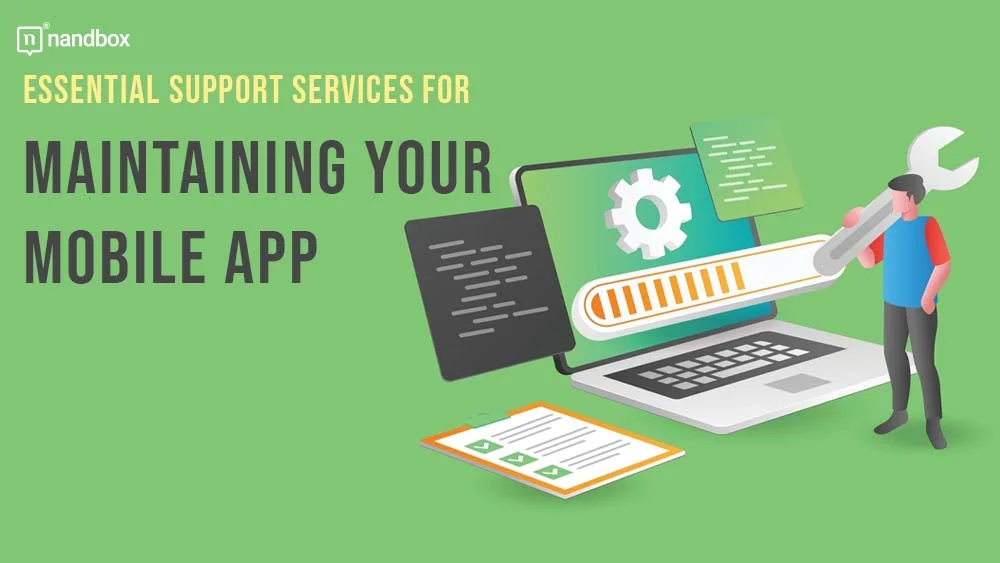Keeping a mobile app running smoothly requires more than just building and launching it. Once your app is available for download, it needs regular care to stay up-to-date, safe, and easy to use. Without the right support, an app can quickly become outdated or full of problems, leading to unhappy users. Understanding the key services needed to keep your app working well will help ensure long-term success. Read this article for more information.
Regular App Updates and Bug Fixes

After your app goes live, it’s important to release updates regularly. These updates don’t just add new features; they also fix problems that pop up as users interact with the app. As a mobile operating system and devices change, your app needs to keep up to avoid glitches. By updating regularly, you can ensure the app works on all devices and operating systems.
Fixing bugs is also a key part of maintaining any app. No matter how well it’s built, some issues will slip through during app development. Bugs can slow down the app, frustrate users, or even expose security risks. For example, an online shopping app might develop an error at checkout after an update, making it hard for customers to complete purchases. A quick fix can prevent losing those customers and keep the app running smoothly.
Security Monitoring and Updates
Keeping your app safe from hackers and cyber threats is crucial, especially if it handles personal or financial information. You can leverage security monitoring services when you outsource IT support to track potential threats and weaknesses, ensuring they are patched before they can be exploited. Regular security updates also help protect against new vulnerabilities that arise over time.
For example, a small security gap in an app can lead to data breaches, costing you not only your reputation but also user trust. Security monitoring services find these gaps and fix them before they become bigger problems. This helps protect both your app and its users.
Improving Performance
As your app attracts more users, it may begin to slow down if performance isn’t managed well. Performance monitoring and optimization services keep your app running fast and smoothly, even as the number of users grows. This includes checking how quickly the app responds to actions, how long it takes to load, and whether it crashes often.
For instance, imagine a gaming app that crashes every time a large number of players log in at once. Without performance optimization and regular mobile app maintenance, these crashes can lead to user frustration and loss of interest in the app. Regularly improving your app’s performance ensures it stays fast and stable, even during heavy use.
User Support
No matter how well an app is built, users will sometimes run into problems. That’s why having a good user support system is so important. Whether it’s through email, live chat, or phone support, providing quick help when users need it makes a huge difference. Without it, users may become frustrated and leave negative reviews.
For example, if someone is using a mobile banking app and can’t transfer money, they might get frustrated if there’s no easy way to ask for help. A quick response from a support team can solve the issue and keep that user happy. Good user support makes sure your users feel valued and stay loyal to your app.
Data Backup and Recovery
Losing data can be a nightmare for any app, whether it’s caused by a system crash, a mistake, or something else. That’s why having regular data backups is so important. Backup services save copies of the app’s data, so if anything goes wrong, it can be quickly recovered.
Imagine a fitness tracking app where users suddenly lose all their progress due to a system failure. Without backups, users might feel frustrated and abandon the app. But with a backup and recovery service, you can restore the lost data, ensuring users can pick up right where they left off.
Tracking User Behavior
To keep improving your app, you need to know how people are using it. Analytics services help track things like which features users engage with the most, how much time they spend on the app, and where they may be having trouble. This information helps app developers make smart choices about future updates and improvements.
For example, if your data shows that many users are exiting the app after using a particular feature, it could be a sign that the feature is confusing or isn’t working well. By understanding these patterns, you can focus your efforts on fixing what’s most important to the users.
Compatibility Testing
With new devices and operating system updates being released all the time, making sure your app works across all platforms is crucial. Compatibility testing services check that your app runs smoothly on different devices and software versions, preventing crashes and other issues.
For instance, your app might work perfectly on older versions of an operating system but experience problems when the system is updated. By regularly testing for compatibility, you can catch these issues early and fix them so users aren’t affected.
Planning for Growth
As your app’s user base grows, its infrastructure needs to grow as well. Scalability planning helps ensure that your app can handle more users without slowing down or crashing. This is especially important if you expect periods of high traffic, like a retail app during holiday shopping.
If your app can’t handle increased demand, it could crash, causing users to lose trust in the app’s reliability. Scalability planning ensures your app can grow along with your user base, maintaining app performance even when demand spikes.
Testing and Quality Assurance
To keep your mobile applications stable and reliable, ongoing testing is essential. Quality assurance (QA) services involve regularly testing your app for bugs and issues before rolling out updates. This helps avoid releasing new features or updates that may cause problems for users.
For example, rolling out a new feature without proper testing could lead to unexpected crashes or glitches. By having a QA team thoroughly test the app in different scenarios, you can prevent these issues from affecting your users.
Conclusion
Maintaining mobile apps requires a variety of support services, from regular updates and security monitoring to data backup and user support. Each of these services plays an important role in making sure your app continues to work well and meets the needs of your users. By investing in these essential support services, developers can ensure a better user experience, helping the app grow and succeed over time. Without proper mobile application maintenance, your app risks falling behind, facing security threats, or losing its user base due to poor performance.




